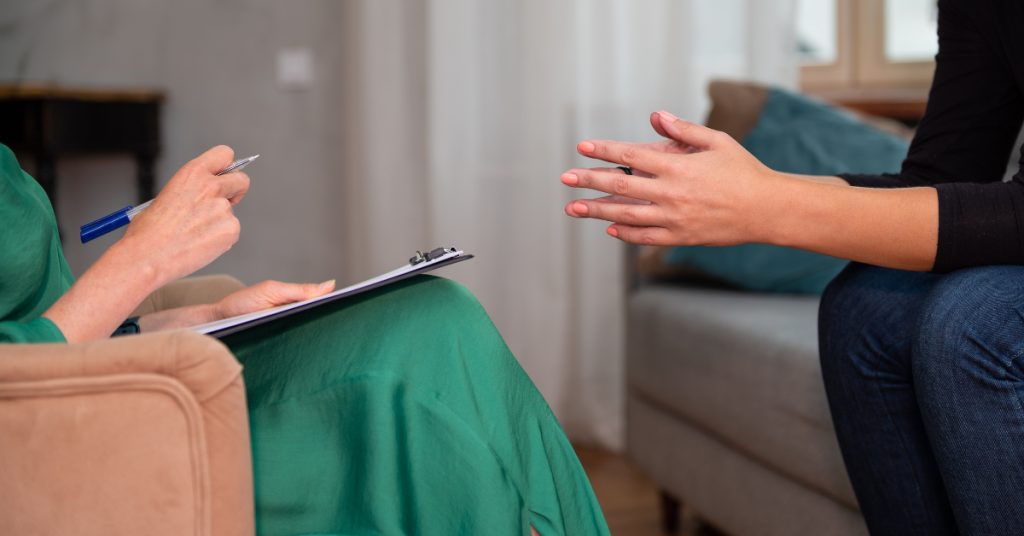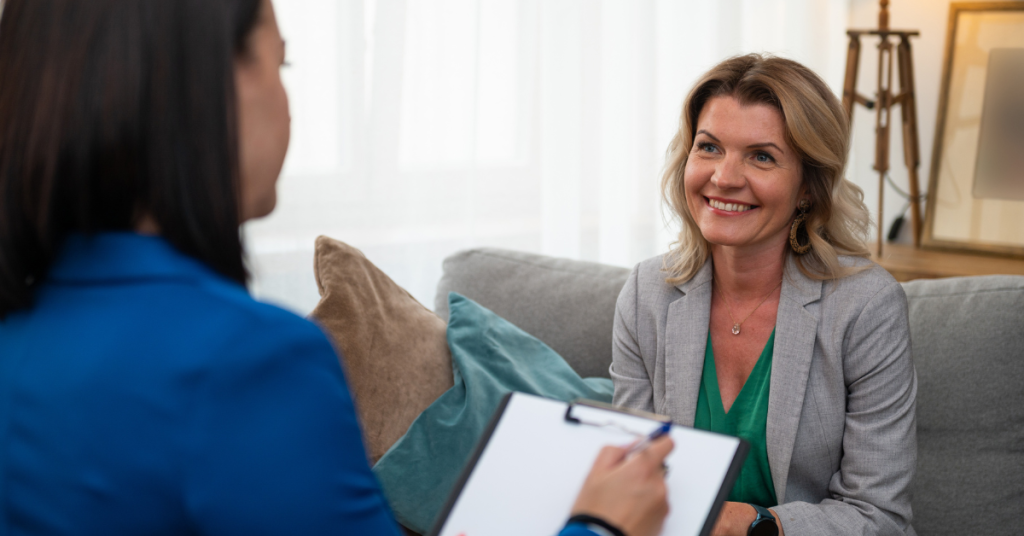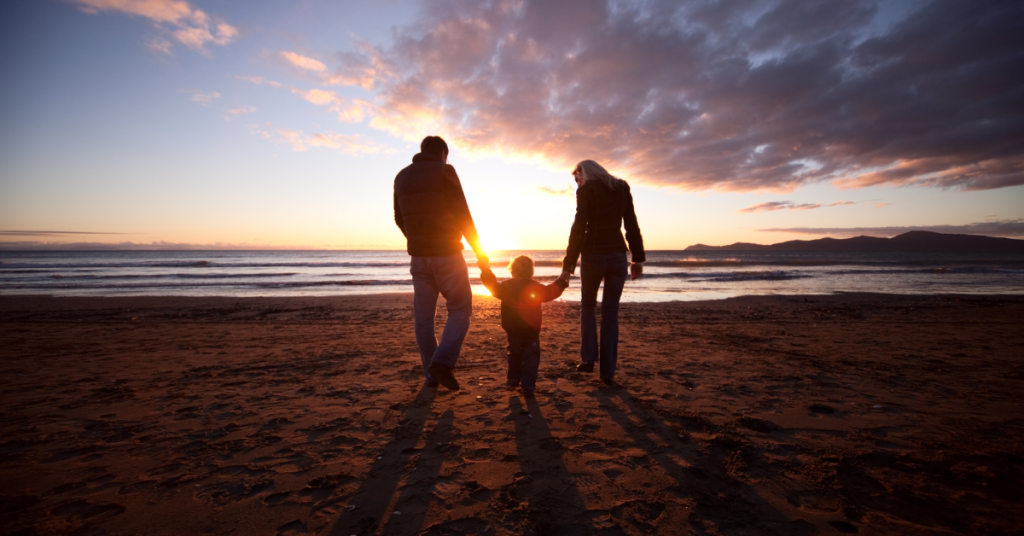Welcome to Christian Faith and OCD episode 101. I am your host, Carrie Bock. On today’s episode, we have a personal story of someone who’s dealt with OCD and has gone through treatment and has written a book about it. So I’m very excited to have Jim Juliana on the show talking about his book, “A Secret Life.”
Welcome to the show.
Jim: Thank you, Carrie, for having me.
Carrie: When did you really first start to show signs of OCD and like, what were those? Even if you didn’t have a diagnosis or you didn’t know that that’s what it was.
Jim: I first knew something was wrong when I was in elementary school, we’re going back now to the mid 1950s, I’m showing my age, and I can remember and relate in the book, an incident where we had a plumber or electrician at the house working.
For my mom and I was snooping around the truck outside and there was a picture in the truck of a partially naked woman and of course I fixated on it. And then after the gentleman left, I started having very serious feelings that I had done something wrong. I was the oldest of eight children. I don’t think we had eight at this time, but went to Catholic school through 12th grade.
Was very religious. I was an altar boy. I was at the top of my class academically, and I thought I was a pretty good person. And then this event occurred and it took my mother and me. The rest of the afternoon for me to realize or come to the conclusion that I wasn’t going to go to hell for having looked at this picture.
Wow. And I remember it very, very vividly. My mother was my best friend all through my teenage years, and I worshipped her and loved her very much, and it was, uh, mutual. And she sat me down, I remember, in the kitchen and tried to explain to me what had transpired, and it wasn’t a mortal sin, and I wasn’t going to hell, and eventually I felt better about it later in the afternoon, and we’re talking several hours where she consoled me and talked to me, and so that was the very first incident where I knew there was something unusual going on.
Back then, the word scrupulosity came into play because of my religious background and upbringing. The other event that took place, which was really probably the most important event in my adolescent years, I had completed the first semester of Catholic high school. In an all boys Jesuit high school, it was Christmas vacation and I was scheduled to go back to school the next day to start the second semester in January.
Now we’re talking 1964 and as I had mentioned, I was a straight A student did very, very well. I like school, enjoyed school, but I had been having a lot of problems. My first semester at PrEP, Georgetown PrEP, was headaches, and I had developed some facial and bodily tics. And it was all trying to get rid of thoughts or ideas that I thought were sexually wrong or inappropriate.
And my grades had reflected this interruption, so to speak. And I was just afraid to go back to school, so the night before I was supposed to return, I ran away. And basically what I did was I went into the park. We lived near Rock Creek park and my friends had a tree for tree house. So I spent the night there freezing my butt off and got back to the house about eight or eight 30 in the morning.
And of course my folks were beside themselves. And that was the first time that I ever received any professional medical help for what was going on. I had just turned 15 years old then.
Carrie: Did they know that you were struggling with this thought process? Was there a lot of confessing that was going on to them?
Jim: No.
Carrie: Or assurance seeking? Okay.
Jim: It was my secret only at that point. And I was very timid. Even though I was a good athlete and a good student, I was behind the eight ball a little bit socially. I was very quiet and introverted. Even with my parents, they would have to pull things out of me, so to speak. You can imagine having a house full of children, all ages, all in school.
We had a nice middle class family and I was pretty happy most of the time, but this was an offshoot of what had happened in grade school and it just kept getting worse and worse and more invasive in everything that I did to the point where. I knew I needed help. I didn’t quite know how to ask for help.
So this was my way of speaking up and getting my parents involved.
I think it’s important to note for parents and others that sometimes like the kid that’s well behaved, that doesn’t mean that they don’t have the internal struggles going on. Because a lot of times we see situations where. A child can be very well behaved and they’re good in school, but then they’re holding on to this anxiety inside and unless it manifests in some way externally, a lot of times people don’t know.
Yeah, and I think I’ve mentioned to you, we have 4 children and 3 of our girls are school teachers. It’s amazing today just how many youngsters suffer from obsessive compulsive disorder. It would shock a lot of parents and… Through discussions with my girls and in the last few years I taught, it was just startling how many children are affected adversely in school and in their activities and at how young it happens.
My wife and I spoke to a lady who was a secretary work for our financial planner and Betsy started talking one day to her and she had twins, seven years old, and one of the twins was having nightmares. and all kinds of problems, and had been diagnosed with OCD. And this was just a couple years ago.
Carrie: Yeah, fortunately, like, they’re catching it a lot earlier, so that there can be earlier intervention.
Yes. Whereas, you know, many years ago, they did not catch these types of things earlier. When you got help at 15, did you get a diagnosis of OCD then, or no?
Jim: I’m laughing at remembering. We went to a doctor, psychiatrist that was a good friend of the family, Dr. Fitzgerald. He had a couple of sons attending prep with me.
He was a good friend of the family. And my parents and I never received or heard the word OCD until 1980, if you can believe that. I was married, had four children and into my career as a teacher and coach. Before OCD was ever mentioned.
Did you label yourself with something random, like I’m weird or quirky, or I feel crazy inside because I think a lot of times people with OCD do feel internally crazy until they get a diagnosis.
Yeah, you’re right about that. A lot of people I’ve met, they don’t want to talk about it. They’re embarrassed. Yeah. I think would be the word I would use, or they feel they’re lesser human beings.
Carrie: How did you explain this to yourself?
Jim: To this day, I think of what happened to me freshman year in high school, for lack of better words, is I had a nervous breakdown of some sort.
I had an emotional… breakdown. I had a mental disorder of some nature that I had no idea what was going on. In fact, just within the last couple of years, when I was meeting with my present Dr. Jim Gallagher, who inspired me to write my book, he talked about the fact that I was a 15 year old, going through puberty, going through all kinds of Emotional, physical changes at that time.
And a lot of that was part of what produced the headaches. The headaches were real. A lot of my teachers thought that I was faking it. I remember that. It was much, much more complicated than anyone thought back in 1964. And it encompassed everything I did, every day, every minute, something was going on and I knew it.
I knew I was different. In fact, later on in my adolescence, when I dropped out of college, I was drafted. It was during Vietnam and our pediatrician was able to write a letter and explain what was going on with me. And I really wasn’t trying to dodge the draft. In fact, I was thinking about going into the service.
They wouldn’t take me because I was, I think the phrase they used was mentally unstable or mentally incompetent. I was four F and didn’t have to worry about going to Vietnam.
Carrie: Wow. Well, you said it took until 1980 for you to get a diagnosis and hear the words O c D. While you were going through this in high school and beyond, was it always mainly themes of scrupulosity, like worried about offending God or going to hell or other things?
Jim: Yes, my wife and I were high school sweethearts and started dating. Oh, I first met her when I was 14. So right around, so she knows all about this and lived with this more than anybody else now that my parents are gone. And it was always a scrupulosity problem. It always, because of my deep religious Christian faith, my Catholicism, my love of God, but it always was, had sexual overtones.
And it was never talked about that. I had something going wrong with the chemicals in my brain. There were pathways that I had developed forcing me to go sideways in different areas. Even when the O C D was used in 80, I was seeing a doctor here in Denver and he actually was trying drugs, prescription drugs to use some of the effects of the OCD.
They hadn’t been accepted yet by the FDA, so my doctor had to get him from Canada. That’s the point where I was in the 70s and 80s where I’m trying every different prescription drug for anxiety, for depression, for whatever they thought it might work. And I probably went through half a dozen to a dozen different types of drugs.
And drugs have never really been a great assistance to my problem. Never. In fact, Dr. Gallagher says it’s normally about only 30% of people that have OCD find any kind of relief from prescription. Antidepressants, those kind of things.
Do you remember what some of the things you were on? Were you on like, because this was before the standard treatment now is SSRIs.
Were you on like a tricyclic antidepressants? Or do you remember? I was
on Prozac at one time. I know my brother. I can’t remember the drug that he used because he’s OCD as well. And I mentioned it to my doctor and we tried and it did have some side effects, but it helped a little bit, but it was never more than just mellowing me out.
Carrie: Okay.
Jim: Kind of controlling my temper and frustration and anger and anxiety in my case anyway.
Carrie: But it never helped like lessen the intrusions for you?
Jim: No, never.
Carrie: That’s hard to deal with. So I imagine that it was probably hard trying to navigate a sense of like healthy sexuality. It’s normal for teenagers to think about sex or be curious about sex or have questions about them.
But those things weren’t talked about. People weren’t having open conversations. Was that hard for you to navigate? Try to figure out like, I don’t know what’s normal versus like what’s OCD related.
Jim: Yeah, what was normal for me was what I had been taught in 12 years of Catholic school, nuns for eight years, Sisters of Charity, which I loved them, they were great teachers, but they were strict, and it was all by the book, the Catholic Church, the doctrines of the church, so I, being the person I was, That was kind of how I acted and reacted.
And if I thought it was a mortal sin to look at a girl walking away from me who had nice legs and a nice butt and swayed. And if that was a mortal sin, then that was a mortal sin. I had to go and confess that, go to church for that. I think like a lot of kids in the fifties and sixties, there wasn’t a lot of, uh, sex education or discourse on sex.
It’s what I learned in school, and it seemed like, as I look back now, just about everything was bad, was wrong. That was my approach, gotta be careful, and I never dated much. I never kissed a girl until my wife to be kissed me when I was probably 16. I was way behind the curve. A lot of it had to do with the OCD and worrying about sin and having to go back to church, confess my sins, talk to the priest, that kind of thing.
Carrie: Did that cause you to engage in confession maybe more than the average Catholic? I don’t know exactly how that works, but did you find yourself going back a lot and confessing impulsively?
Jim: Yes, absolutely. It’s like hitting your head on the brick wall, like, okay, this is going to help. And then you walk out of the confession. Confession works where you can go anytime you want. Okay. It’s up to the individual and it’s a sacrament, just like receiving the Eucharist or marriage. So it’s supposed to receive help from God and grace from God by going to confession, supposed to be helpful. And I turned it upside down on its head and it became drudgery and something that I avoided more than took advantage of.
Carrie: Okay. Did you have a lot of compulsive praying during this time? Like you’d have a certain thought and say a certain prayer or feel like you were repeating certain prayers over and over?
Jim: Yeah, that’s a good point. I’ve thought about that. Yes, most definitely. I used to, in grade school, during Easter, during Lent, Advent, Christmas time, I tried to go to church every day before school. And then in high school, we had mass, daily mass. Optional. And I went a lot. In fact, half of the kids that went to prep were boarding students. So about 200 day, we were called day hops and then 200 boarding students from all over the United States. And we would go back in early August for football camp to start practice.
And I was one of the captains my senior year. And the tradition had always been go to church, go to mass every morning before we start practicing the day. And a lot of kids were rebelling against that. And I remember along with the other co captain, we had a team meeting and I was the one that said, Hey, we’re going to go to church every morning.
We’re going to keep this tradition. And a lot of guys were upset with me. As I recall, that was an example of how. Impulsive I was about the religious. I even carried it into my responsibility as captain of the football team, making the rest of the guys go to church every morning, just because I thought that’s what I wanted to do.
It wasn’t anything I was hurting him, but I’m sure there’s some guys to this day that are still resentful why Juliana made us go to church on, uh, every single day during camp.
Carrie: I think that’s a good point though, where sometimes when people struggle with OCD, they can rope other people into their compulsive behaviors. And this especially happens for spouses, children, others that are closest to you. I’m curious, what was the impact on your wife and children? Because you had told me when we met a little bit before that they actually wrote parts of your book, right? Or you included parts from them in the book.
Jim: Each of the four children, they’re all adults now in their 40s. And then my wife, Betsy, wrote probably half a chapter. And what I wanted people to see is how my OCD affected them. I knew as a father with them growing up and trying to be a good dad, but I knew a lot of times they had no idea what was going on and what my actions, why I was doing what I was doing. I wanted them to have an opportunity to relate people who read the book, what it was like for them , especially for my son, he spent a lot of time with me in the fall. He was always the manager of the football team, and he was around me a lot during football practices and that kind of thing. Both my youngest daughter and Jimmy, our son, I taught both of them at the Catholic school they attended for, I taught them two years, which they talk about a lot of it was fun and it was a good experience, but there were some tough times for them. And then of course, Betsy’s perspective is probably the most intuitive and the most real because she knew me as the boy next door. Literally, her family moved next door to my grandparents at the beach.
She told her father the first summer that we knew each other that she was going to marry me. Now, how she knew that, I still don’t know. She said, Dad, I’m going to marry that guy. But she had an awful lot of insights and I give her a lot of credit because I wouldn’t be here if it wasn’t for her. She got me through a lot of tough times, especially in college.
When things got really bad, the thoughts got really bad, I called them episodes or sessions in the book, I think, where I would have a thought and it would kind of take control of my brain. When I went to see Gallagher in 2015. Those sessions amounted to 60, 70 times a day. I was interrupted in my mind related to something having to do with OCD and oftentimes sexual nature, 65 to 70 times.
Carrie: That’s a lot.
Jim: It’s terrible. In graduate school, I got my master’s because of my OCD. I couldn’t read my textbooks because I was interrupted so often. And I loved to read. There were times before that where, and I said, I think I mentioned I developed tics, shaking my head and trying to get rid of these thoughts and the children and Betsy offered, I think, excellent perspective to the book.
The other point that people should realize is OCD is familial. It’s genetic. Everybody, all my children have some form of OCD. My dad had it. My uncle had it. In fact, in 15 or 20 years ago, the National Institutes of Health in Bethesda, Maryland was doing a study trying to isolate the familial gene that causes OCD.
And about eight people in our family, my family, participated in the study to isolate that gene. Now that I’m better, and we can joke about it, but back then it wasn’t, like my dad was super OCD and perfectionist, and, but he would never admit that he had OCD or suffered from any kind of, It’s actually, I think, technically referred to as a phobia, OCD.
And yesterday, for the first time in several years, I went to see my doctor, just to kind of, he calls it a tune up. We talked for an hour and just got caught up, and he mentioned that I’m losing my train of thought, he, I can’t remember what the point I was trying to make, but anyway.
Carrie: What was that process of treatment like for you? So when you went in 2015, you feel like that was when you got some really good therapeutic help.
Jim: Yeah, it’s capital E, capital R, capital P, Exposure and Response Prevention Therapy. And I could spend 20 minutes describing it exactly. I’m not a doctor. I don’t want to do that, but it’s very controversial. My doctor, Dr. Gallagher, is the expert in the western part of the United States. People come from all over. In fact, the waiting list in 2015 to see him was a couple of years when he found out my age and what I had been through, I was getting close to 70 then, and it had to do with sex and religion. He knew he could treat me and help me.
So he saw me right away and within weeks and then months of seeing him, I experienced a change. Basically what he does is, for example, he went to my daughter Stephanie’s house. Stephanie has a mild case of O C D and it’s the cleanliness O C D. Okay? You wash your hands and organizational, everything has to be perfect, that kind of thing.
And some of those attributes are good, especially if you are a teacher. She teaches the little one second, third grade. So he went over to her house and he’s walking around our house and he would see a picture and he’d make the picture crooked and he’d move the furniture and play games with her head. We have fun talking about that.
And my uncle Charles, he had all his clothes organized. He showed me one time later in life. Perfectly white shirts, colored shirts, striped shirts, Hawaiian shirts. It’s amazing the way people will react to the OCD, and I was in the process of writing the book in the 2018, I guess, and there were two sisters that happened to live in Colorado, and they were in their 20s.
And they had suffered their entire life from clemennitis OCD to the point where they hardly ever left their home.
Carrie: Yeah, it can get really severe with the avoidance.
Jim: Yeah, and at one point, I mean, they were taking showers five and six times. Anyway. They moved out of their home and were living together, and during the course of my writing the book, they committed suicide. And Dr. Gallagher had never treated them, but he had been in a seminar where they were present, and he talked about some of the things that he might have done to treat them, but that was a really sad story. There are a lot of people that attempt suicide or commit suicide because of OCD.
Carrie: Tell us about, do you remember some of the exposures that you had to do that were really hard, like, I don’t know if I can do that, and not, like, give into a compulsion, because essentially that’s what they’re asking you to do, is kind of expose yourself to certain things and then, or have an intrusion and not give into the compulsive, whether it’s the tick or the prayer or the thing that you usually do, to kind of resolve that angst.
Jim: I had a doctor, a psychiatrist, MD, treated me for over 20 years, and he was the one that recommended Gallagher. We had talked about Gallagher before, but he knew of my strict Catholic faith and my religious background and everything, and he never thought I was ready for the exposure and response therapy because of what it asks you to do sometime.
Betsy and I saw Gallagher first time. He said, I’m never going to ask you to do anything that’s illegal or hurtful or harmful or against the law or anything like that. What I ask you to do may go against what you’ve been taught in your religious background. And I was to the point Betsy didn’t think I was going to do.
He said, if you do what I tell you to do, I can cure you. That’s how confident he was. And I was all in. I was surprised Betsy thought I was going to get up and walk out. Which a lot of people do. He told me that. And to answer your question directly, what did he have me do? He had me stop going to church.
Stop praying. I had never purchased any kind of a pornographic book or a Playboy or any of that kind of stuff. Second visit, we went on a field trip. He took me to a Barnes and Noble and told me to, and bought me three or four Playboy magazines, told me to look at the pictures, read the articles, that kind of thing. Gave me a couple websites on the internet, pornographic websites. The idea is to totally overwhelm you with what you don’t want to do. Like I said, within weeks and then months, Betsy could tell immediately that just by doing what he told me to do. And then initially I was seeing him a couple times a week. And then it was once a week, and then it was once a month, but it was pretty intensive.
Carrie: So you went weekly at first, or did you go more than?
Jim: I went weekly at first, yes. In fact, I think the first month I went twice a week. And then I went once a week for maybe another month or two, and then we got to the point where I went once a month and for an hour.
Oh, I know what else he did. He made tapes that I had to listen to. Anti prayer tapes. You don’t need to go to church. There is no hell. And a lot of people look at it as being very controversial, but I do too. I mean, pornography and those kinds of things are sickening to me, but it works.
Carrie: So that cut down after engaging in those activities, that cut down on the intrusive thoughts that you were having?
Jim: Absolutely. So what it did was, the pathways in my brain were destroyed by my having done those activities.
Carrie: Hey, Carrie, interrupting this interview just for a moment. Wanted to say that it sounds like what our guest went through was flooding. There’s a difference between in behavioral exposure therapy.
There’s a difference between flooding and gradual exposure. Flooding is kind of what it sounds like where you’re immersed in something very quickly. Gradual exposure is where you bite things off into smaller steps and you have a hierarchy and you move through that exposure hierarchy starting with things that are lower on the exposure level and then moving upward.
It’s quite possible that flooding was chosen in this situation for treatment due to the severity of the level of the issues, but I’m not familiar with many therapists today who are still using flooding techniques. There may certainly be some. I also want to point out that the International OCD Foundation, which is not a faith based organization, has principles of effective and religiously sensitive exposures for ERP.
We will copy that website and put it in the show notes for you so you can read those. They talk about not asking a client to do something that they knowingly would violate their safety or supported beliefs and being able to do the activities that other people from their faith community can do as a part of normal practice and identifying working with the faith community and the therapist.
We talk a lot on the show about various types of treatment, and so just to know that I just want people who are listening to this for the first time or maybe this is their first exposure to exposure and response prevention. I don’t want anyone to get scared or overwhelmed or think that this is going to be the absolute way Treatment plan for them.
Your own therapist has to assess what’s going to be best for you and your situation. So just keep that in mind.
Jim: Like I said, I went from 65 to 70 sessions a day to the peak of where I was feeling my best, maybe one.
Carrie: Okay. Wow. That’s a huge difference.
Jim: I was to the point where suicide was always in the back of my mind. The only thing that kept me from committing suicide was my family and crazy as it sounds, my religion. Because of course it’s suicide is mortal sin is a grievous act. I would assume most Christian churches. And yeah, it was startling revelation. I was a totally different person.
Carrie: How did you reconcile this concept of almost like, I have to sin in order to get better for my OCD. Like, I have to stop doing things that God wants me to do and start doing things that are against my faith system in order to, like, I think that’s a piece that a lot of people would really, like, wrestle with. liike, how can I be asked to do these things in order to get better?
Jim: That’s why the first doctor didn’t recommend Gallagher all those years, because he knew how religious I was. And to answer your question, and the way Gallagher explains it, he’s not Catholic, but he’s Christian. He was raised Christian. I think he’s married to a Catholic woman.
Anyway, I came to the conclusion that no loving God wants any human being to live the way I was living. To suffer at that level. Anxiety, depression, suicidal thoughts. If you’re a good teacher, it makes you tired because you put a lot of effort into it. My girls were always telling me how tired they are, and I said, I can relate.
So if you put on top of that, all this other, these thoughts and gyrations that I was going through to not sin, and I would come home at night, totally exhausted. That makes sense. Would sometimes lash out and get negative and be angry. Especially to my children when they were smaller, and to Betsy, because that wasn’t me, that’s not the kind of person I was, but this overwhelming guilt and anxiety and depression was just like a pall that surrounded my whole life.
So when Gallagher and I talked, and it was like, This is not what God wants. God’s a loving God, a forgiving God. If you make a mistake and you’re sorry, it’s over, done with. You don’t have to carry it for the next 25 years. So that’s the way I looked at the pornography and stuff. It was not sinning. It was allowing me to live the life that Christ really wants everyone to live, a happy life.
I have a God given talent to work with kids. And I always knew that, always considered myself, this is not a profession, it’s my vocation. I was meant to be a school teacher and I could motivate kids and help kids. And why would God allow me to lose that attribute because of OCD? That’s not what he wanted.
He wants me to be a good teacher, good father, good person, so in a perverted way, it’s not perverted, it’s not the right word, but in a strange way, doing what would be normally wrong was really making me a much better person, much better individual, able to live the life that I’m supposed to live. That’s why I’m talking to you today.
I feel this is my responsibility. I’m not teaching anymore. Dr. Gallagher told me yesterday, by the way, he said, I gotta tell you, there are three people that have read your book, and they’ve all been my patients, and they’ve all been kids. He said, and I’ve cured them all. That’s positive. And I couldn’t have done that had I not listened to him and done what he told me to do.
Carrie: Why did you decide to write the book? I know he encouraged you to write about your experience, but obviously, like, some of these things are personal, you know, that you’re opening up about. Why did you decide to kind of put yourself out there like that?
Jim: Because I thought it was my responsibility, my worst enemy, to have to live with OCD the way I did, and others do, like those two sisters that the only way out for them was suicide.
That’s not the way life’s supposed to be. The children were a little hesitant when I asked them to write something for the book, and I said, Hey, you could be helping some other people. You could be doing some good. Sure. And Betsy’s always been supportive. That’s her M. O. She’s a good, caring, empathetic individual.
It was kind of a team effort, and when I hear stories like Gallagher told me yesterday, makes it all worthwhile.
Carrie: So can people find your book on Amazon and other places?
Jim: Amazon is the best place, Jim Juiliana, author, is my Facebook, and it has a lot of pictures of the children and a lot of reviews from people who have read the book.
If they think they have it, they need to find out, determine if it is OCD. Especially with children, because so much going on with little children. I remember middle school children getting up out of their desk and falling down for whatever reason. They’re just all over the place, and you never know what they’re thinking and doing, and I hate the thought of teenagers and young children having to suffer OCD and not have any help from parents professionally.
Carrie: Well, thank you so much for sharing your story.
Jim: It’s been great. And I appreciate your putting the word out. Pay it forward.
Carrie: I’m really glad that we had Jim Juliana on the show to share with us about his experience with exposure and response prevention. It was tough for him, but it worked. We are very much about increasing hope on the show and wanting people to know that wherever you are on your OCD or anxiety journey, you can get better.
Never give up. And as always, thank you for listening. May God be with you on your next step towards treatment and greater mental health. Christian Faith and OCD is a production of By the Well Counseling. Our show is hosted by me, Carrie Bock, licensed professional counselor in Tennessee. Opinions given by our guests are their own and do not necessarily reflect the use of myself or by the wealth counseling.
Until next time, may you be comforted by God’s great love for you.









